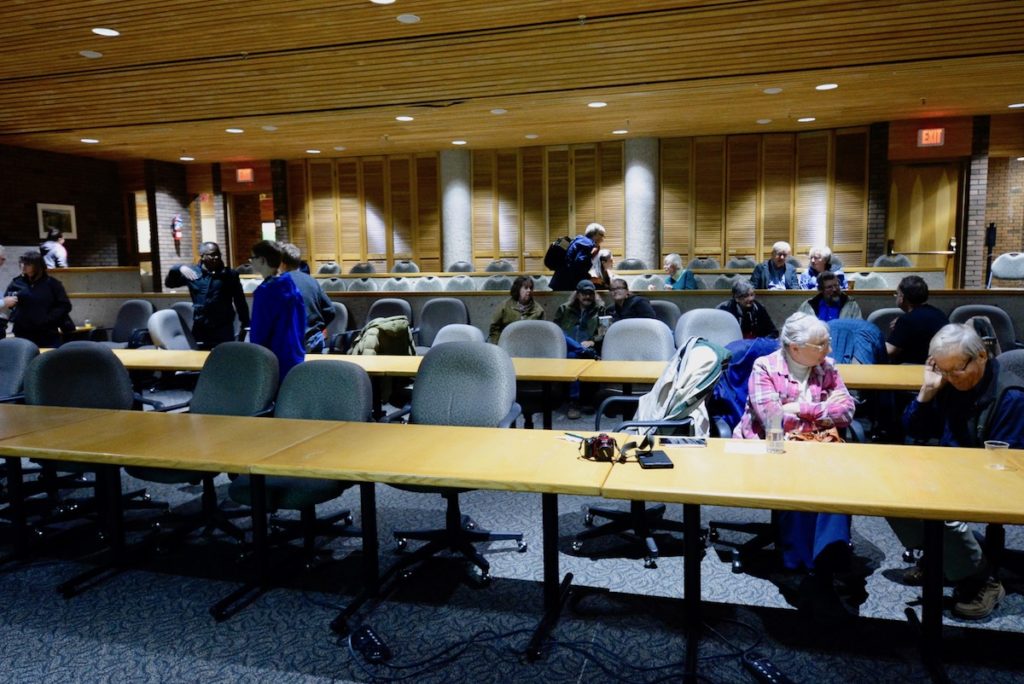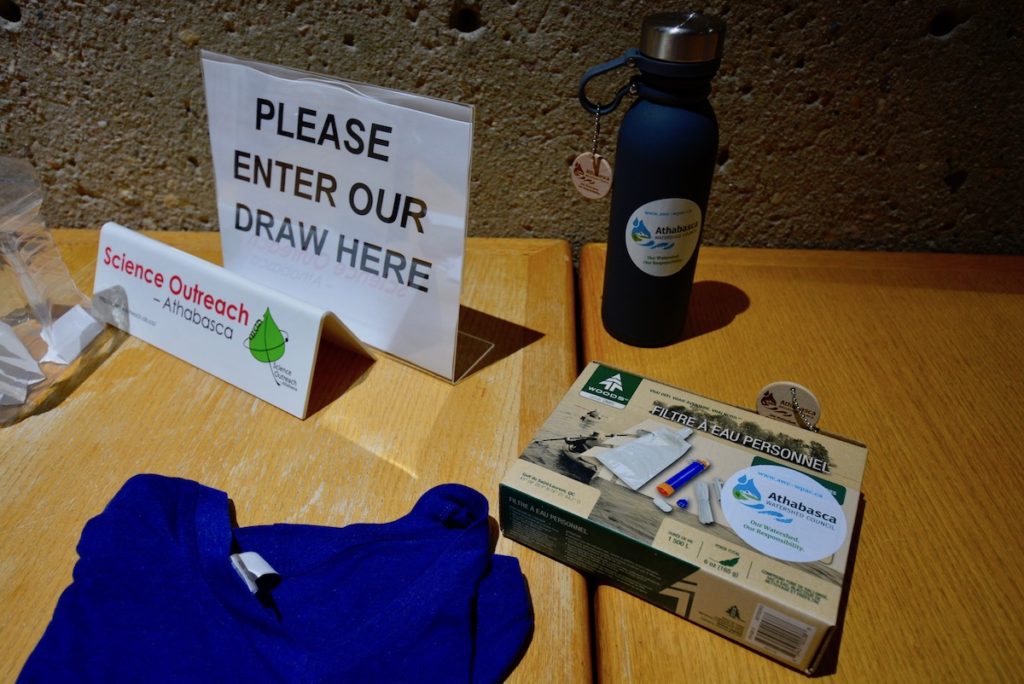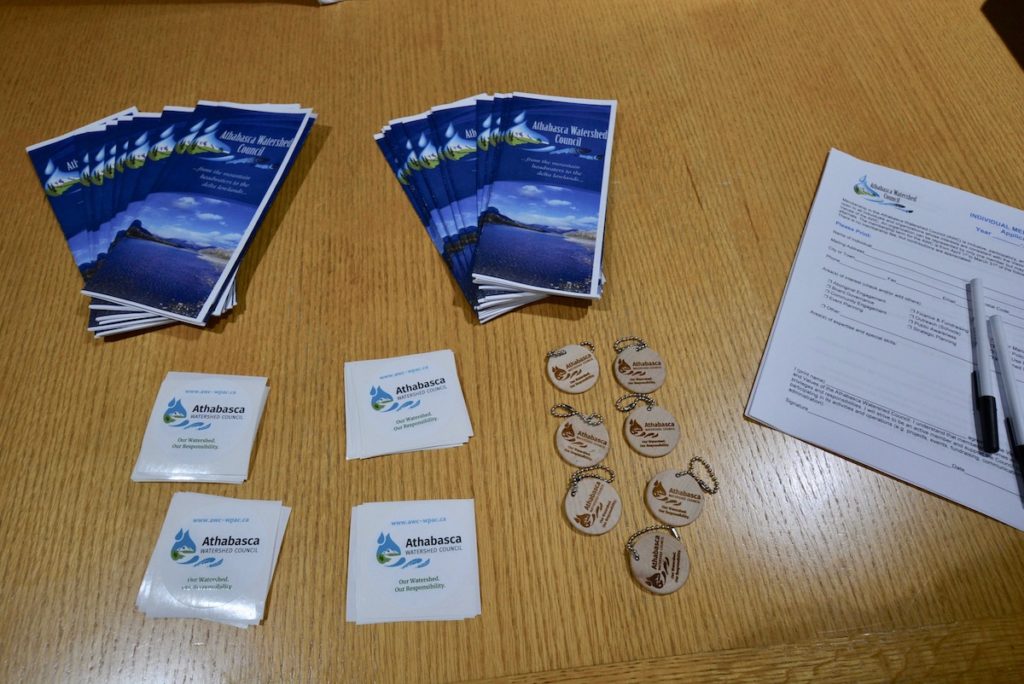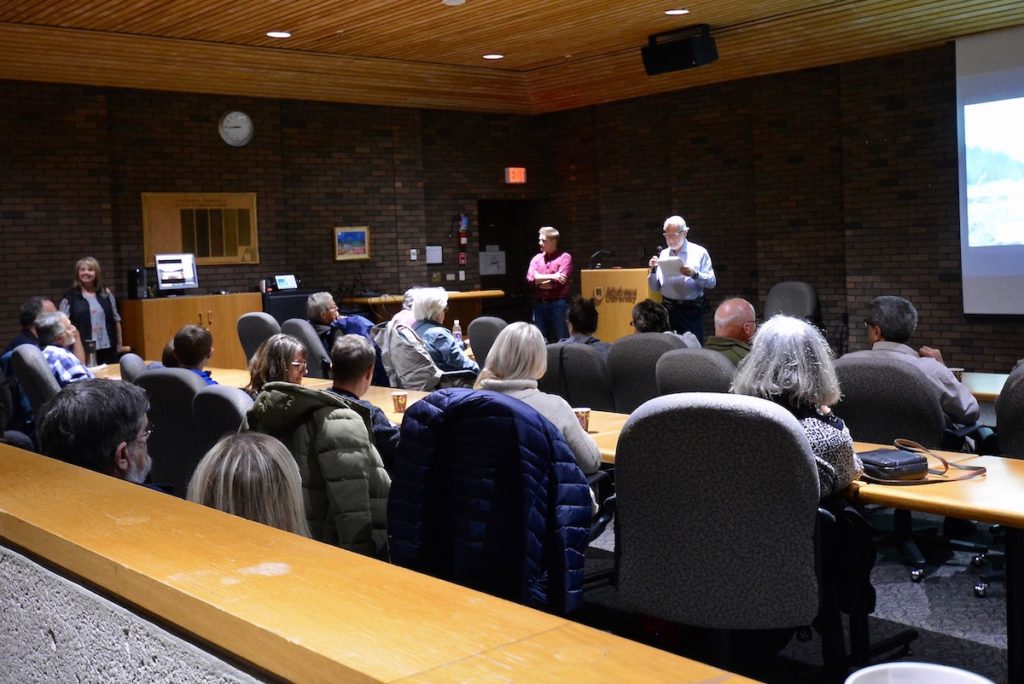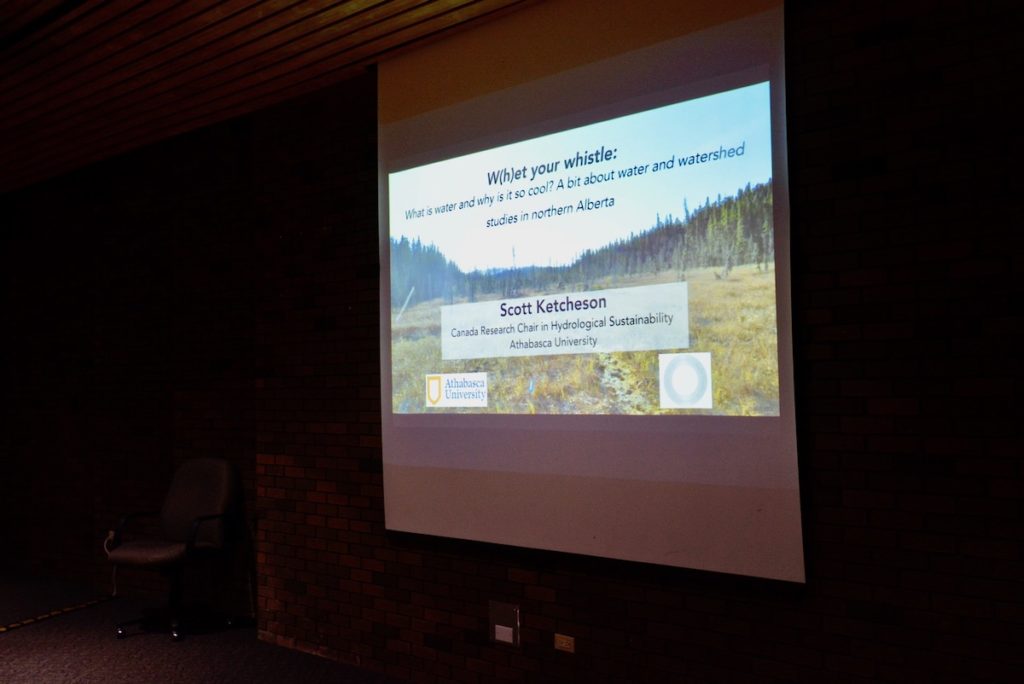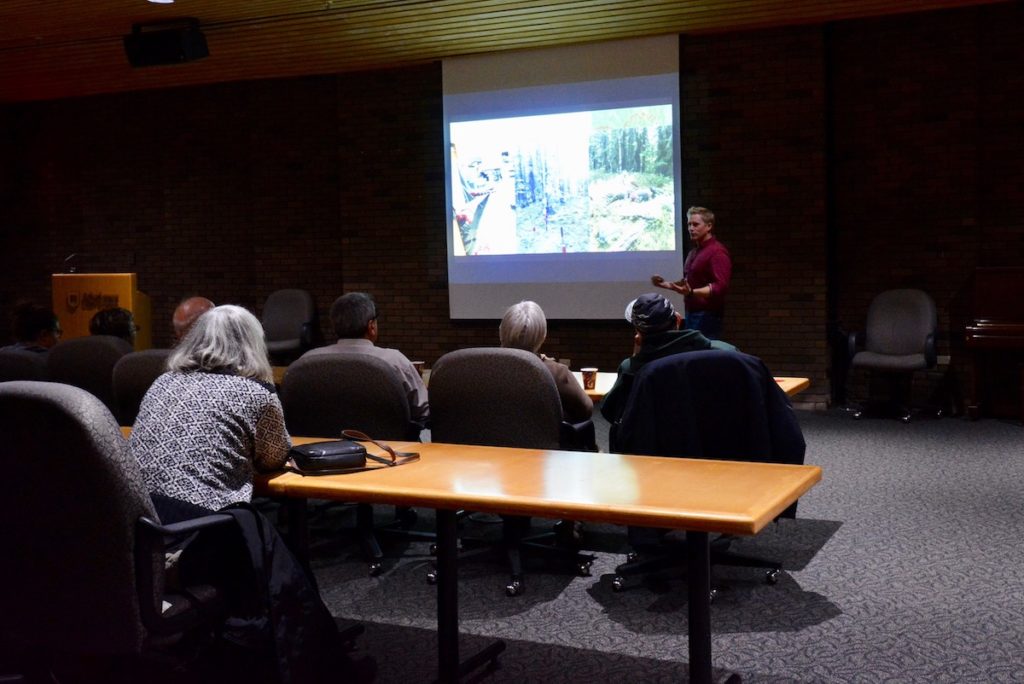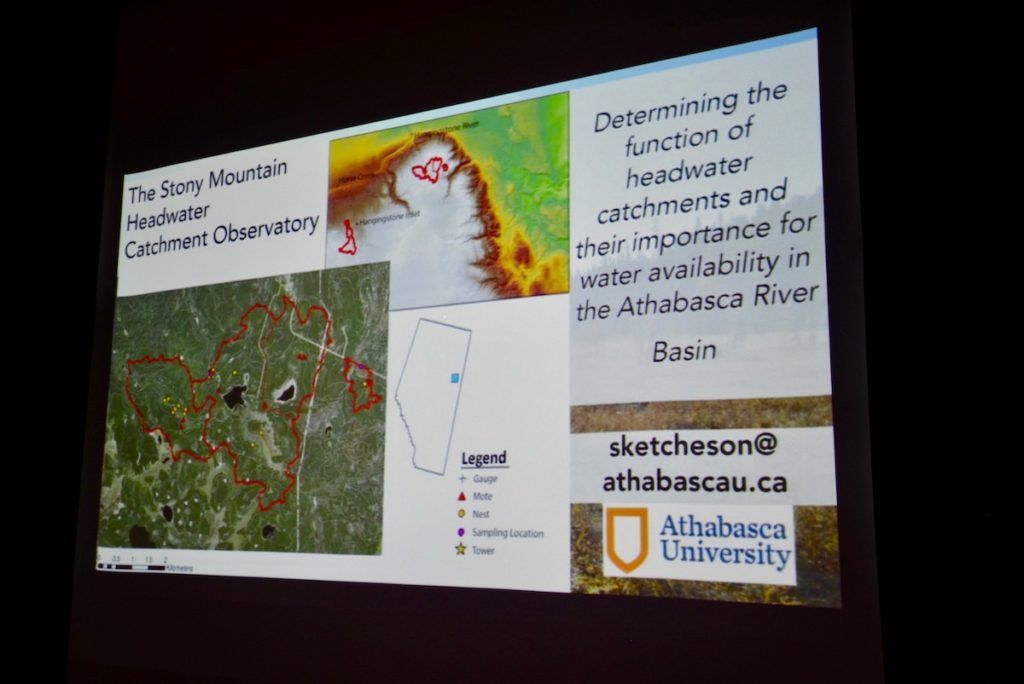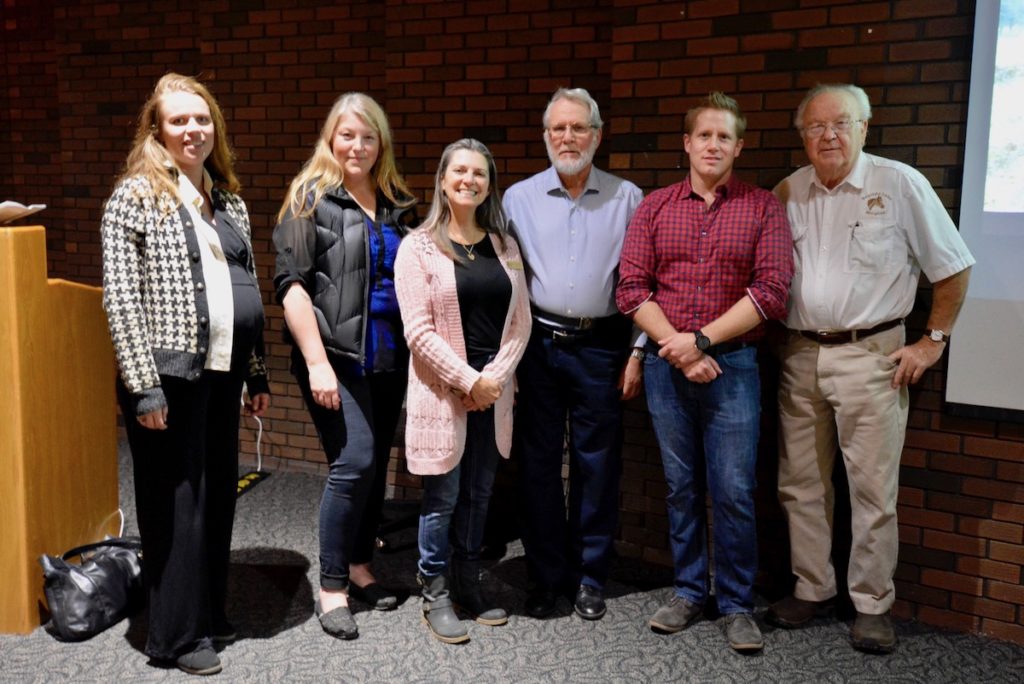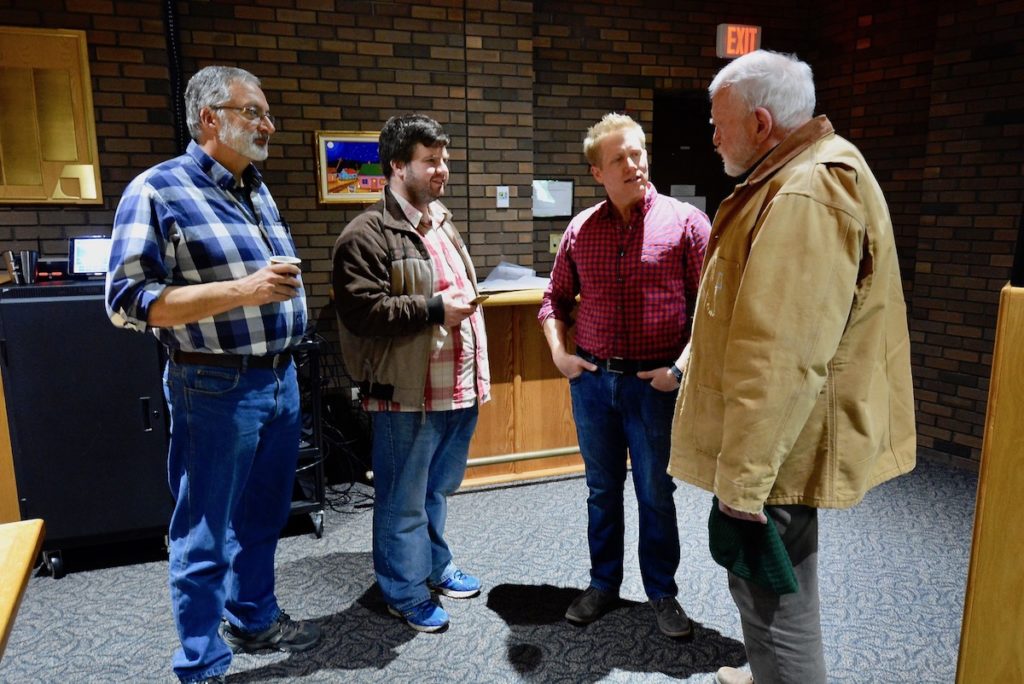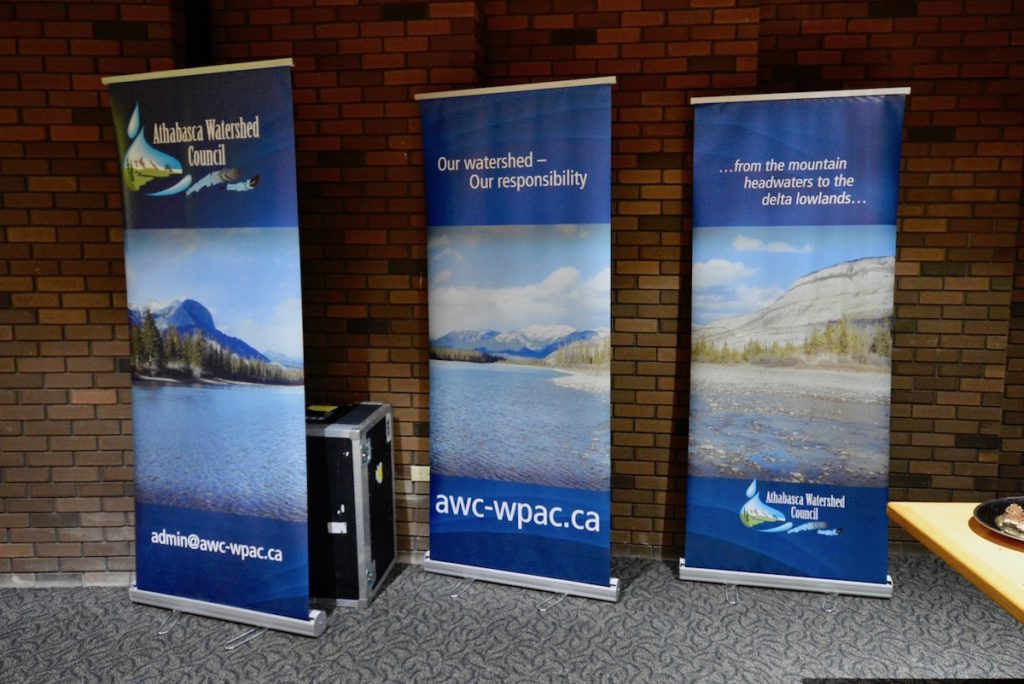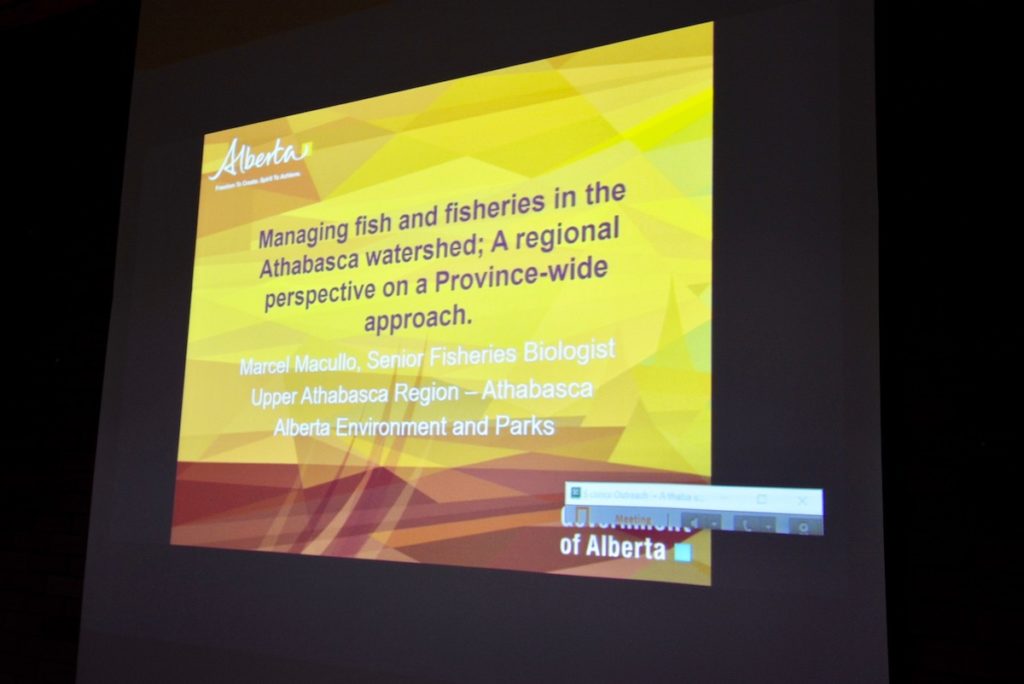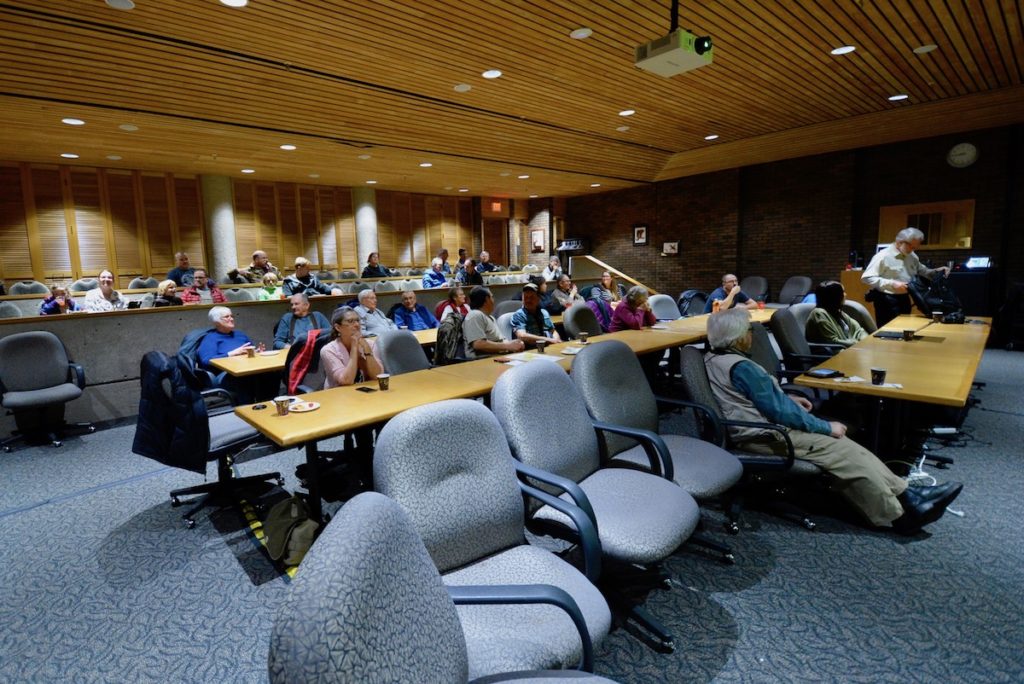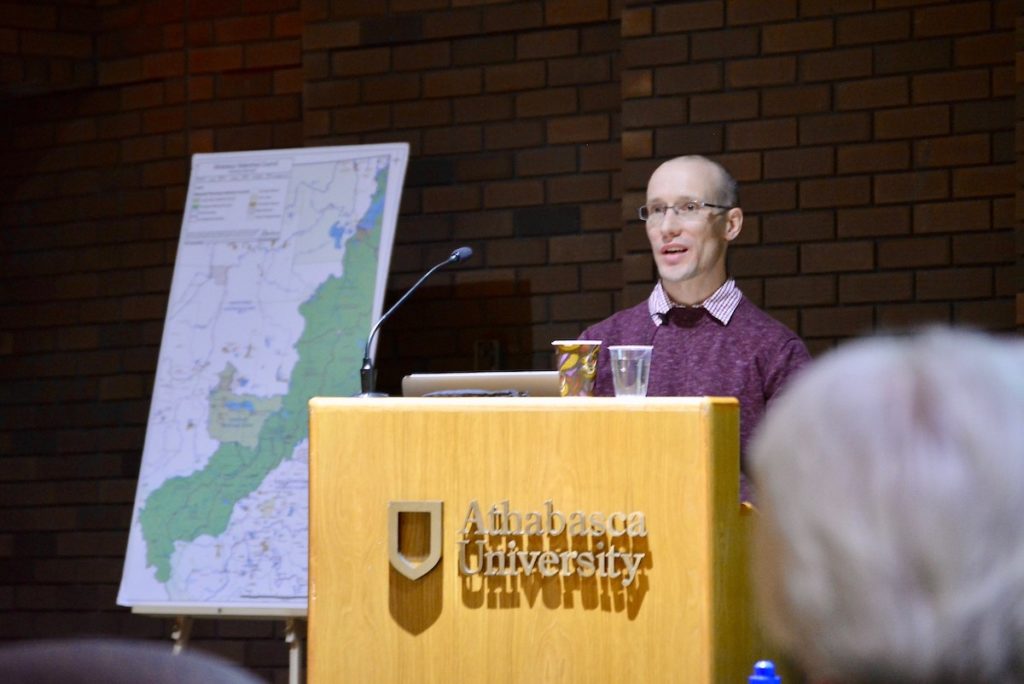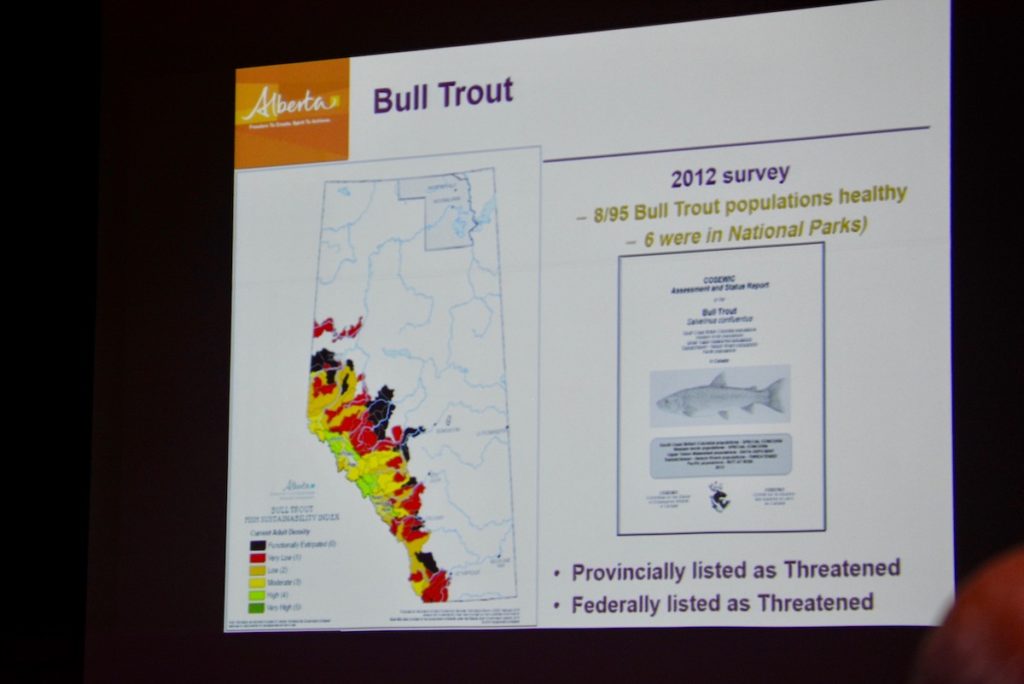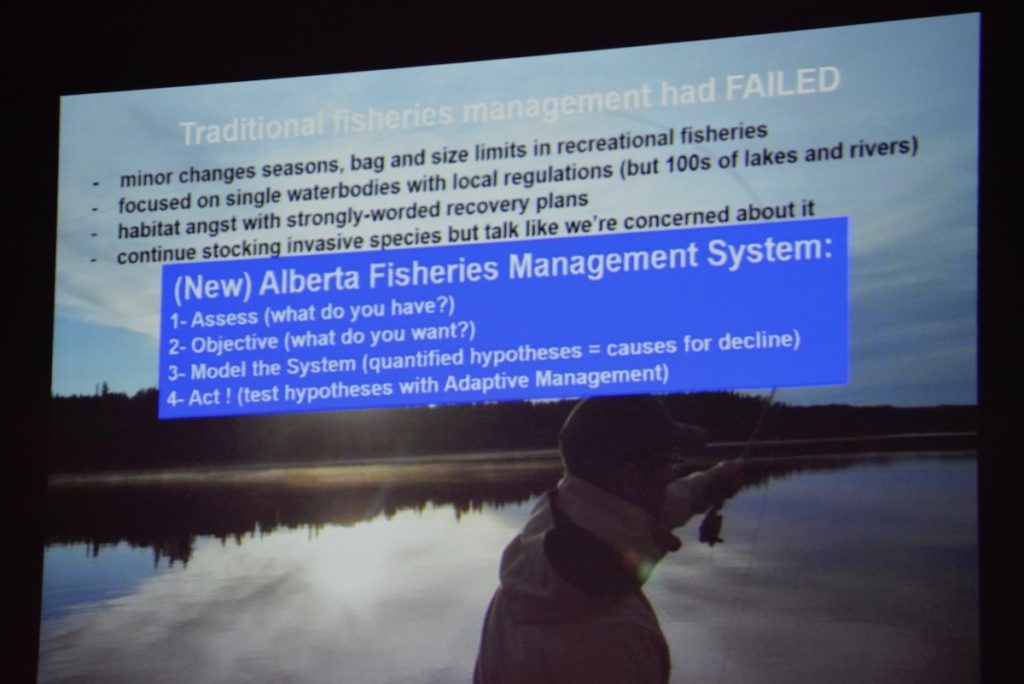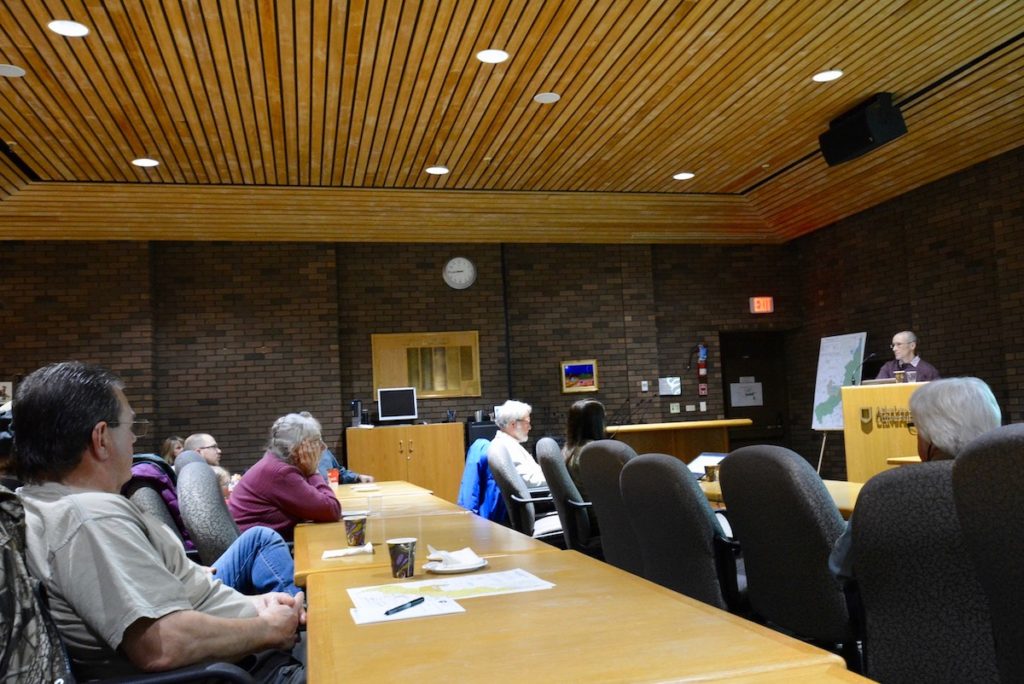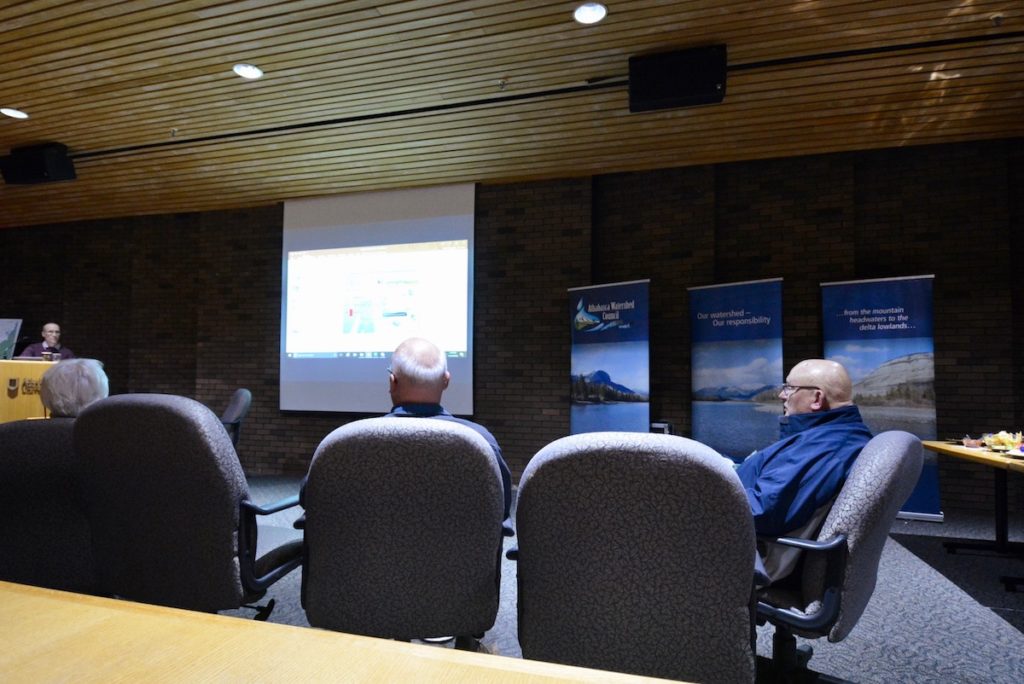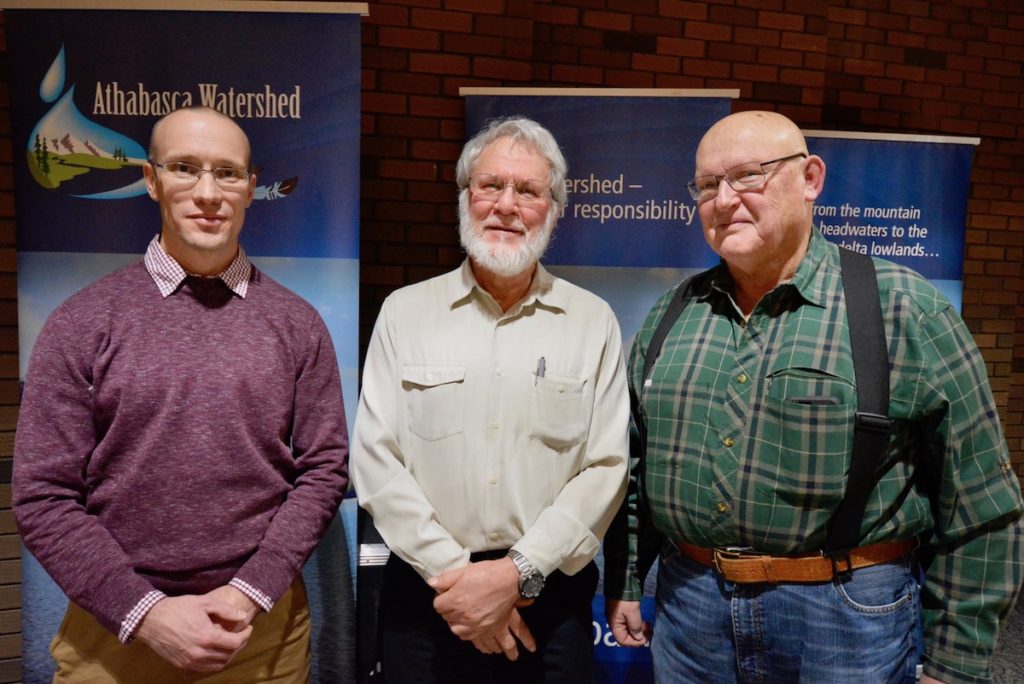Building Watershed Knowledge With Science Outreach – Athabasca
AWC-WPAC, Events, and Stakeholders | boreal, fish, fisheries, hydrology, and water | December 2018
Part of the work of the Athabasca Watershed Council includes providing timely and credible information about the Athabasca Watershed to our stakeholder audiences and to Indigenous peoples, as well as the general public. So when approached by our Director Dr Robert Holmberg about partnering with Science Outreach – Athabasca on their water/watershed related presentations, it was an obvious perfect pairing.
Science Outreach – Athabasca consists of scientists and people who are interested in science. Their main objective is to promote science awareness in the greater Athabasca area and beyond.
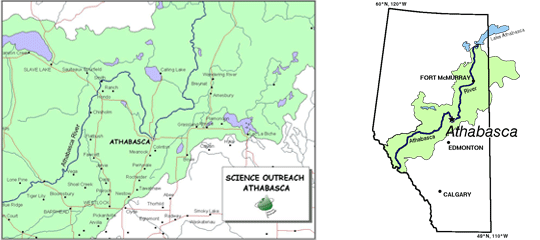
They foster awareness and interest in science through public presentations and “hands-on” participation events for school children and the general public.
These activities include science talks, camps, photographic displays, travelling exhibits, bird and butterfly counts, and other events. Topics include archaeology, astronomy, biology, chemistry, geology, physical geography, meteorology, and physics.”(http://scienceoutreach.ab.ca/about.php)
Moving Water From Forest to River
On October 24, the Athabasca Watershed Council co-sponsored the refreshments and some door prizes at Dr Scott Ketcheson’s presentation of “W(h)et your whistle: what is water and why is it so cool? A bit about water and watershed studies in northern Alberta” Scott gave the audience a breakdown of basic water science, from why water molecules stick together to how rain is measured. He then described the work he has been doing in the Stony Mountain Headwaters, a unique geological area in the Fort McMurray region.
Dr Ketcheson and his team have been measuring how water flows over various landscapes with the ultimate goal of understanding water availability over a regional scale. Using a combination of high tech instrumentation and material ingenuity, they can remotely sensor water movement in the local basin.
We are excited to have this sort of cutting-edge research being done in the Lower Athabasca Watershed, as it is an area of ecological sensitivity and economic importance. Understanding how water returns from the forest to the tributaries and finally into the Athabasca River is important in monitoring water quality and quantity.
Take a look at the work he is doing at Athabasca University.
Protecting our Fish and Fisheries with Knowledge
The next event we co-sponsored with Science Outreach – Athabasca was “Managing fish and fisheries in the Athabasca watershed: A regional perspective on a Province-wide approach” presented by Marcel Macullo, Senior Fisheries Biologist, Alberta Government. This was an eye-opening talk on the state of fish stocks and fisheries management in our watershed.
Mr Macullo described how some fisheries are currently managed, the types of fish that are more prevalent or in decline and what is being looked at to improve fish numbers. He went into detail about how sterile fish are created to add to the wild stocks, but to prevent cross-breeding.
Athabasca Watershed Council Director, Morris Nesdole was in the audience and spoke about fisheries management and his involvement in the current 3rd party review committee on Alberta fisheries. Mr Macullo responded that he is looking forward to the new recommendations coming from the 3rd party review.
Another member of the audience questioned whether fisheries management takes other animal species needs for healthy fish populations into account. Mr Macullo responded that in the past, fisheries management really only looked at the fish themselves, but now they are looking at issues with a “whole watershed approach”.
We appreciate Science Outreach – Athabasca’s contribution of bringing watershed issues to the general public in Athabasca and region. We hope to continue to partner with them on upcoming presentations related to water and the watershed.
If you have a chance to attend a Science Outreach presentation, you should. It’s a great way to get first-hand knowledge from experts on not just watershed subjects, but so many other practical aspects of science. The next event is the annual bird count happening at Muskeg Creek Park (Meet at the Chalet) on December 27th.
If you want to be kept up to date on the Athabasca Watershed Council’s events in 2019, please subscribe to our newsletter.

